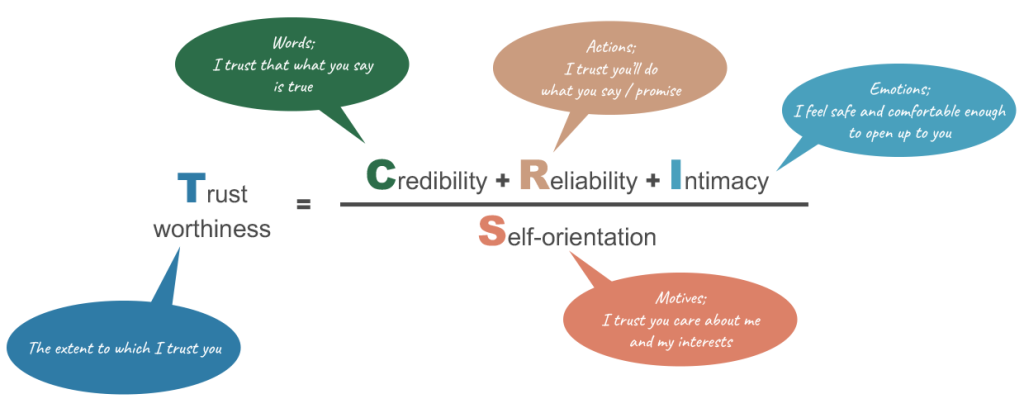When you’re in professional services, what is it you’re marketing and selling?
Exactly, trust.
“Wait. What? I thought we were in the business of selling services,” some people in your organization may say.
Well, they’re wrong. At least, partially…
Obviously, services are a key resource to any professional service firm. Delivering them to help clients win in a competitive market is a primary activity. One that your subject matter experts spend most their time on.
When bringing a service to market, however, the service itself doesn’t make a big difference. After all, your competitors offer similar or even the exact same services.
Other key resources like knowledge, tools & methodologies, and data can give you a competitive advantage – but, only for a limited amount of time.
Relationships & trust are the big differentiator.
When your subject matter experts are known and trusted by the market, it’s a lot easier to get access to key players, generate awareness and drive demand for your services.
But, how do you build trust?
Here’s a model that helps you explain the complex idea of trust in a comprehensible manner: Trust Equation from the book The Trusted Advisor, Maisters et al. (2002).

Your subject matter experts’ credibility is usually on par. After all, that’s what clients pay them for.
Clients expect your subject matter experts to understand the implications of new legislation, for example. They want to be sure their financial statements are accurate. Or, know if their employee benefits are sufficiently competitive.
Reliability, I feel, is an easy fix. Just make sure your subject matter experts set realistic expectations. And meet them. Or, even better, have them underpromise and overdeliver.
Now, intimacy is a lot trickier for most people.
This is somewhat understandable. As intimacy deals with emotions, not subject matter expertise – what professional service firms tend to reward their experts for.
However, a true connection and meaningful collaboration can only happen when both parties feel safe enough to open up.
This is where ‘small talk’ comes in. “It enables us to find common ground and shared interests,” writes executive coach Julia Korn on Forbes. In other words: it helps us level with others.
As for self-orientation… Instead of putting their services first, subject matter experts should put their clients first. This means: understanding clients’ goals, knowing the obstacles they encounter in achieving those goals, and having a clear vision for the client’s future.
Hope this helps!
This Spark was published as MBD Boost #018 on September 10, 2024.
Are you an MBD Spark subscriber?

Bi-weekly tips & thoughts on marketing & business development.
For everyone involved or interested in bringing professional services to market.
Subscribe today!
